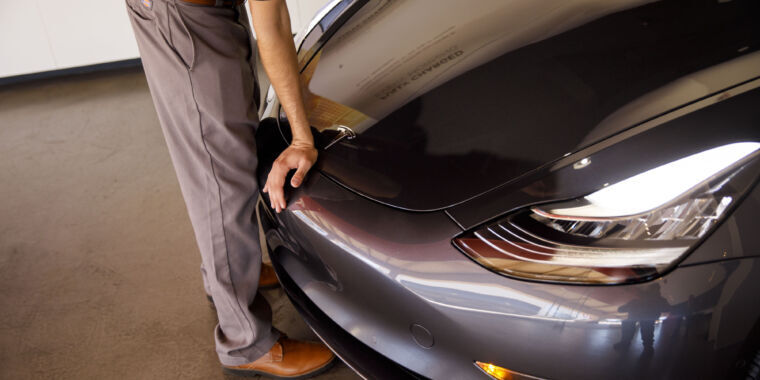- cross-posted to:
- enoughmuskspam
- cross-posted to:
- enoughmuskspam
The electric car manufacturer Tesla had to issue a massive recall this month to fix faulty hood latches that can open while its cars are driving. The problem affects more than 1.8 million cars, which means it’s slightly smaller than the recall in December that applied to more than 2 million Teslas.
The problem, according to the official National Highway Traffic Safety Administration’s Part 573 safety recall report, affects model year 2021–2024 Model 3s (built between September 21, 2020, and June 2, 2024), model year 2021–2024 Model Ss (built between January 26, 2021, and July 15, 2024), model year 2021–2024 Model Xs (built between August 18, 2021, and July 15, 2024), and model year 2020–2024 Model Ys (built between January 9, 2020, and July 15, 2024).
The problem first became apparent to Tesla in March of this year after complaints about unintended hood opening from Chinese customers. By April, it had identified the problem as deformation of the hood latch switch, “which could prevent the customer from being notified about an open hood state.”
Although the problem is with the hood latch, as with many Tesla safety recalls, the problem can be fixed with an over-the-air software patch. The new software is able to detect if the hood is open and, if so, will display a warning to the driver to alert them to stop their vehicle and secure the hood.



The latch is fault, and so is the sensor. Sensor doesn’t go off when the latch starts to fail from deformation.
According to the description, it’s just the sensor, not the latch. The microswitch has a lever like many do and that lever can become bent if damaged which would prevent it from warning the user if they failed to latch the hood. Most older cars just had a secondary latch so if you failed to latch it completely, at least the secondary one would catch it…
Not sure what description you’re talking about, but I’m basing this on the article itself.
Even in your reply…you say the problem is the actual latch being physically damaged.